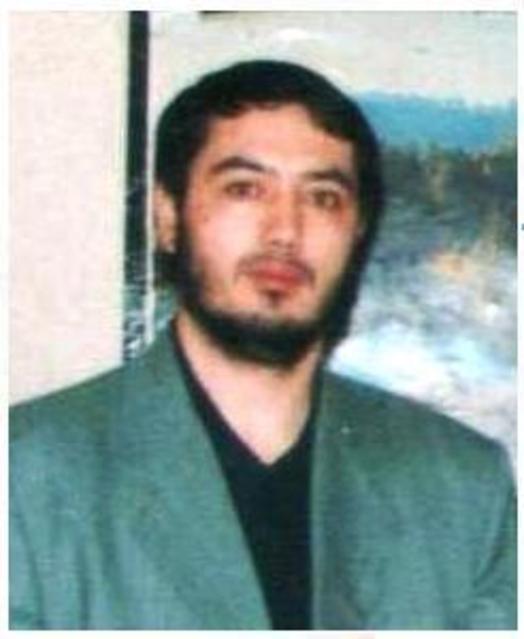
In 1998, Askarov took refuge in Turkey due to pressure from Uzbek government because he was a political opponent. While Askarov was still in Turkey, bombed attacks were carried out against Uzbek President Islam Karimov in Tashkent on 16 February 1999. The Uzbek state was actually suspected to have masterminded the attacks. Karimov used the Tashkent bombings as a means to eliminate his opponents as a result of which hundreds of people were jailed. Both Rustam Mamatkulov, another Uzbek and Askarov were blamed for the attacks although they were both outside the country on the day of the bombings. Witness reports and further evidence proved that Askarov was serving as a translator during a meeting between IHH Humanitarian Relief Foundation President Bülent Yıldırım and a Kyrgyz minister at the time of the bombings in Uzbek capital.
Upon a demand from Uzbek administration, Mamatkulov was detained at the Atatürk Airport on 3 March 1999 and Askarov was detained on 5 March 1999. Both Mamatkulov and Askarov applied to the Organization of Human Rights and Solidarity for Oppressed Peoples (MAZLUMDER) to seek help.
On 12 March 1999, a lawsuit was filed against AskaYırov by the Turkish foreign ministry with the approval of the cabinet demanding his extradition to Uzbekistan. In the first hearing of the case, which was held at 5th Penal Court of First Instance in İstanbul’s Fatih district, Askarov said he was an Uzbek citizen with a Kyrgyz background and denied all the charges directed against him. He said he was serving as a translator to a Kyrgyz minister in Turkey at the time of the attacks against Uzbek president. Although Askarov said the demand for his extradition to Uzbekistan was politically-motivated and that he would be subjected to heavy torture and even a death penalty in the event of his return, the court decided his extradition.
MAZLUMDER took the court ruling to the European Court of Human Rights. The Strasbourg-based court decided that Askarov not be extradited to Uzbekistan because of the existence of the risk of torture and capital punishment in the event of his extradition. Despite the European Court of Human Rights ruling, Uzbek prisoners Mamatkulov and Askarov were handed over to the Uzbek authorities by a cabinet decision on 26 April 1999 after midnight.
Then President Süleyman Demirel is known to have dealt with the extradition process himself.
Sending a note to European Court of Human Rights, Turkey said Uzbekistan is a country which respects human rights and opposes torture, so extradition of the two Uzbeks would not lead to any serious problems. Turkey extradited the Uzbeks without waiting for an answer from the court.
Many human rights organizations including MAZLUMDER, Human Rights Watch and Amnesty International voiced concerns that the extradited Uzbeks faced the risk of being subjected to torture and maltreatment in Uzbekistan.
Back then, the Turkish government tired to ease such concerns saying it received assurances from the Uzbek administration to ensure the safety of Mamatkulov and Askarov and grant them the right for a fair trial; however, this did not turn out to be the case.
A decade-long torture in prison
Following his extradition, Askarov was placed in the Tasturma Prison, which is notorious for its human rights violations and torture of inmates. It is known by everyone that Askarov was not granted the right to a fair trial. Not only Askarov but also his family members were subjected to torture and Askarov was sentenced to 11 years of jail sentence at the end of the trial process.
From time to time, Askarov found coverage in the world media due to the torture and ill treatment he was subjected to in jail.
On November 26, Uzbekistan's National Security Service invited journalists from the BBC, Voice of America, and Radio Liberty to speak with Askarov, apparently after challenges to the official version of events that appeared on the Internet.
After repeating his basic testimony, Askarov suddenly found himself alone with the journalists when the security official left the room. At that point, Askarov changed his statement and told the reporters he had been deceived by Uzbek Interior Minister Zokir Almatov into admitting his guilt and implicating others in the bombings.
"The Interior Minister Almatov himself invited me to his office and promised that if I would give testimony against Mohammed Solih [Erk Democratic Party leader], if I played this role, then everyone would be amnestied, that no one would be shot, and I would be released after the trial. So I said what I said in court to save these people," Askarov said.
Askarov said he was very likely to be heavily tortured and killed due to what he said in the aforementioned interview. Nothing was heard from him for a long time following this interview.
In the meantime, in a case filed by MAZLUMDER against Turkey at the European Court of Human Rights, Turkey was fined to pay 25.000 euros because it failed to comply with the court’s relevant article in the Askarov case.
Just as he was reaching the final days of his prison sentence [as he would be released in April 2011], Askarov was killed in prison due to heavy torture. His body was sent to his family and the cause of his death was cited as heart failure.